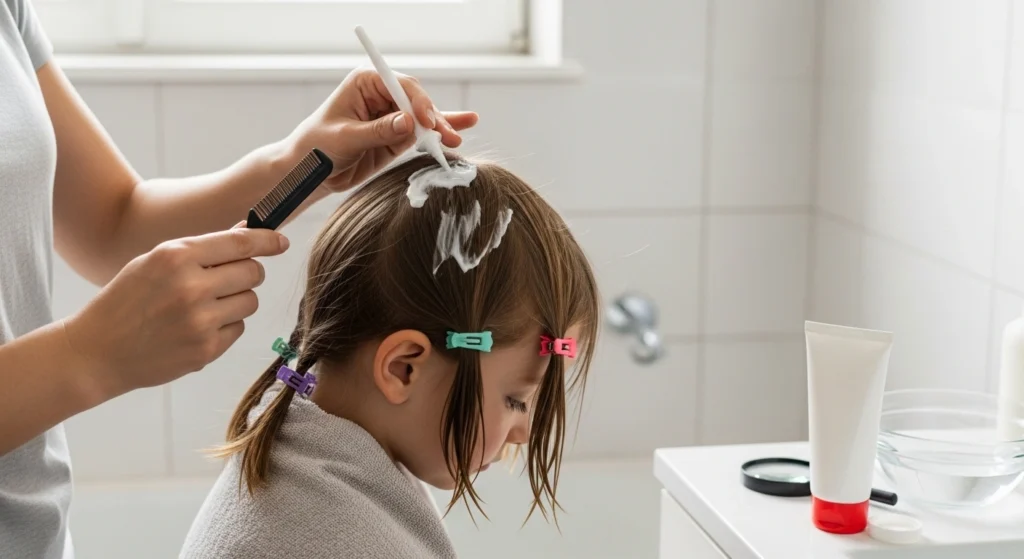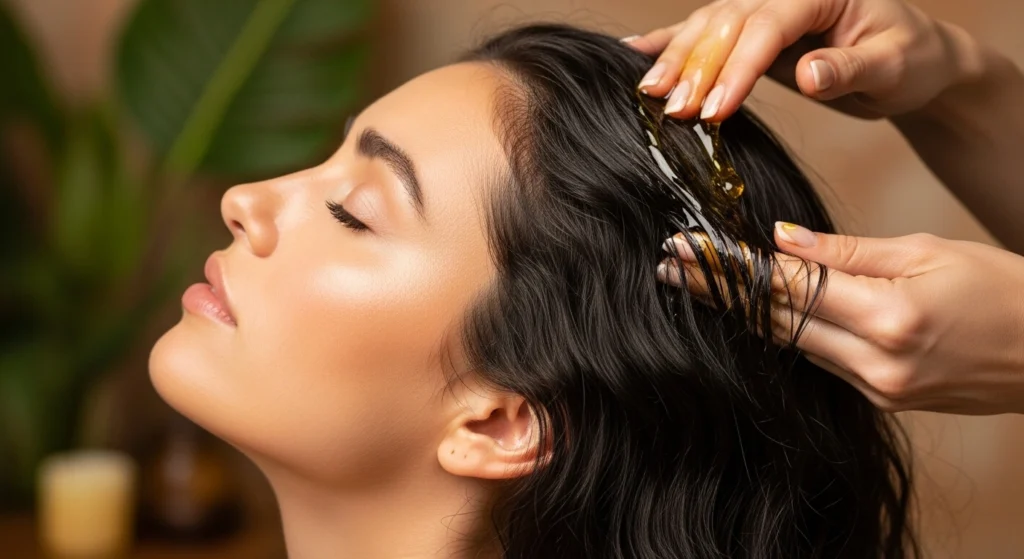Dealing with lice is stressful enough wondering can lice treatment cause hair loss only adds to the anxiety.
In this article, we’ll clear up the confusion, explain when hair shedding might happen, and share safe, expert-backed treatment options.
By the end, you’ll know how to protect your scalp, recover confidently, and avoid unnecessary damage.
Understanding the Concern: Can Lice Treatment Cause Hair Loss?

Lice Versus Treatment – What’s the Actual Culprit?
Head lice themselves do not directly cause baldness. However, the infestation and its treatment can sometimes lead to temporary hair shedding. This usually happens because of:
- Excessive scratching → damages follicles and weakens hair roots.
- Tight combing → mechanical pulling on strands.
- Harsh chemical products → scalp irritation, breakage, or rare reactions.
The key point: hair loss is typically temporary and reversible.
How Scratching and Infestation Contribute to Hair Shedding
When lice bite, the scalp becomes itchy. Continuous scratching may:
- Break hair shafts.
- Causes scalp inflammation or infection.
- Weaken hair follicles temporarily.
In severe cases, scratching-related infections (like folliculitis) may worsen hair shedding, but this is uncommon.
Normal Shedding vs. What’s Abnormal
It’s normal to lose 50–100 hairs daily. During lice infestation and treatment, you may notice more hair in your brush or comb, but this often reflects normal shedding made visible by fine-toothed combing, not true hair loss.
Common Lice Treatments and Their Hair Health Impact
Over-the-Counter Chemical Treatments
Most OTC lice shampoos contain permethrin or pyrethrin. These are generally safe, but side effects can include:
- Scalp irritation or redness.
- Dryness, leading to breakage.
- Rare allergic reactions.
Hair loss is uncommon but can occur in sensitive individuals.
Prescription Options and Side Effects
Doctors may prescribe stronger treatments such as:
- Malathion – flammable, may irritate skin.
- Ivermectin lotion – generally safe, mild side effects.
- Abametapir (Xeglyze) – FDA-approved; rare reports of temporary hair color changes or shedding.
While effective, these medications should only be used under medical guidance.
Other Ingredients That May Impact Hair
Some treatments contain selenium sulfide. While mainly used for dandruff, it has rare reports of:
- Temporary hair discoloration.
- Increased fragility leading to shedding.
DIY and Home Remedies – Risky for Hair Follicles
Popular DIY remedies like kerosene, bleach, or vinegar can damage the scalp and hair. These are unsafe and not recommended by dermatologists.
Pro Tip: Stick to medically approved shampoos or professional lice treatments instead of risky home hacks.
Safe Lice Treatment & Hair-Friendly Strategies
Gentle Combing Techniques
- Use a fine-toothed metal lice comb.
- Work in small sections.
- Apply conditioner to reduce friction.
- Comb from scalp to ends without tugging.
Non-Toxic Options
Professional clinics offer heated-air devices (AirAllé) that dehydrate lice and eggs without chemicals. This method has a 99% effectiveness rate and avoids drug-related side effects.
Post-Treatment Hair and Scalp Care
- Wash with mild, sulfate-free shampoo.
- Apply natural soothing oils (e.g., coconut or jojoba) for scalp comfort.
- Avoid tight hairstyles that stress follicles.
- Maintain hydration and nutrition for healthy regrowth.

When to Consult a Healthcare Provider
Seek medical advice if you notice:
- Excessive clumps of hair falling out.
- Scalp swelling, pus, or sores.
- Prolonged shedding beyond 2–3 months post-treatment.
FAQs – What Readers Want to Know
Will lice medicine cause permanent baldness?
No. Most treatments do not damage hair follicles permanently. Any shedding is usually temporary.
How long after treatment should hair return to normal?
Most people see shedding stop within 2–6 weeks, with full recovery in a few months.
What signs suggest treatment-related damage vs. normal shedding?
If hair falls out in patches or if the scalp is inflamed and sore, consult a doctor. Normal shedding is evenly spread.
Are there safer options for children or sensitive scalps?
Yes. Heated-air treatments and gentle combing are recommended for children and those with sensitive skin.
Conclusion
While it’s natural to wonder can lice treatment cause hair loss, the good news is that most cases of shedding are temporary and preventable. With the right treatment approach and proper scalp care, your hair will return to normal.
👉 Book a consultation with Dr. Rana Irfan in Islamabad today to discuss safe hair care solutions and get personalized advice for healthy recovery.
